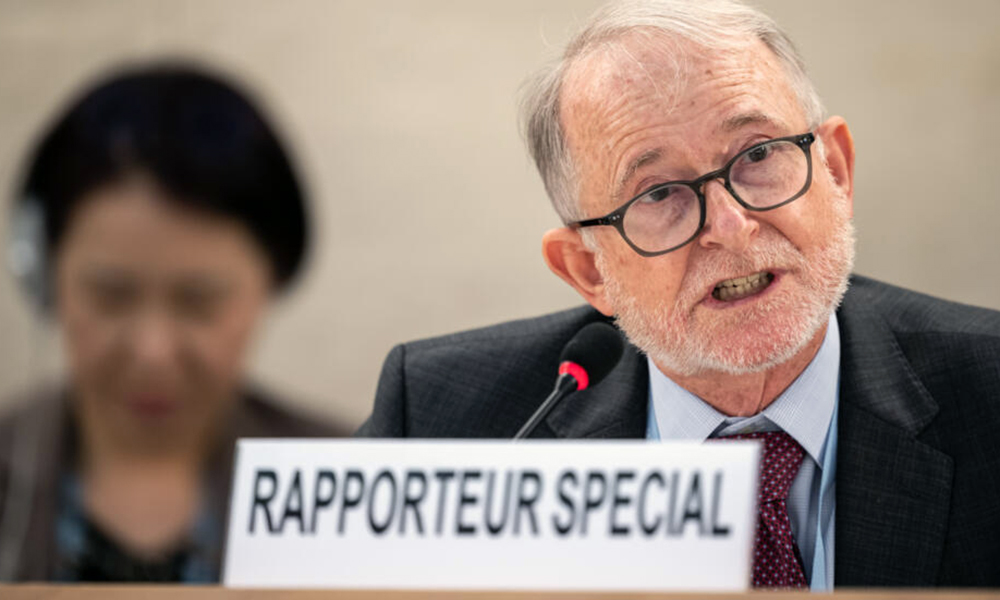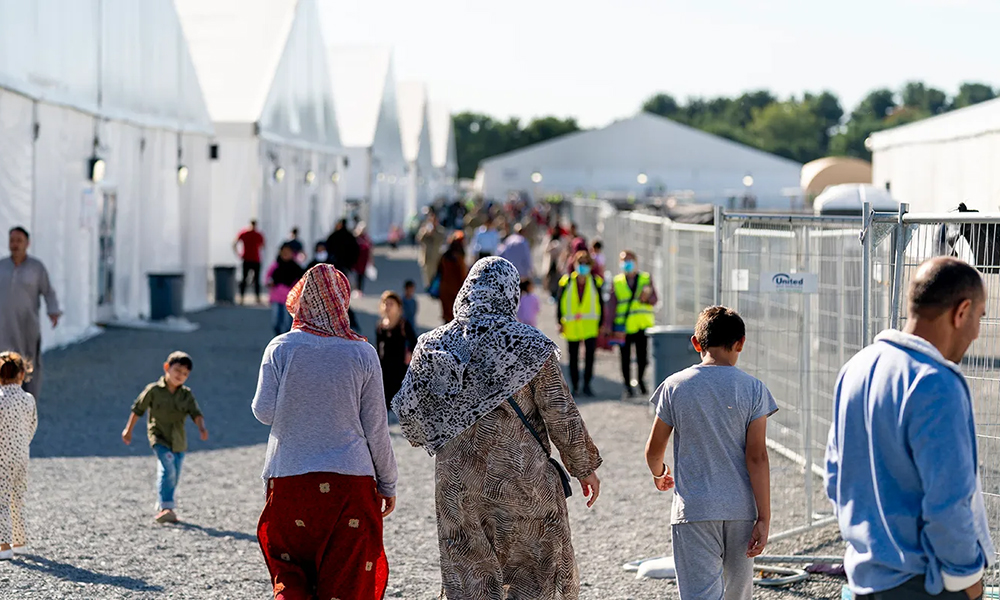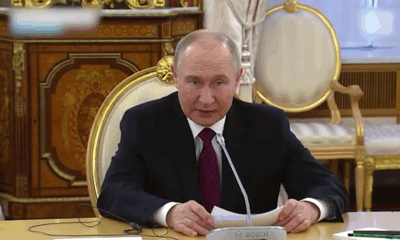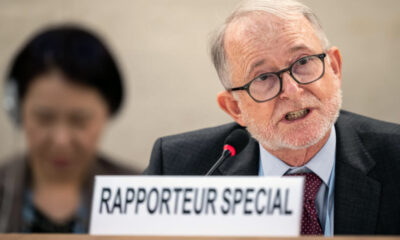Latest News
Nine in 10 Afghans are not consuming enough food: WFP

Ninety-three percent of Afghan families are not consuming sufficient food, the World Food Programme said on Friday.
WFP also said three out of four households are using extreme coping mechanisms, such as skipping meals or preferring to give food to children instead of adults.
The WFP conducted a telephone survey from June 17 to September 5, asking 1,600 random households per month about their food habits. The agency reported a “marked difference” between the period up to the August 15 and then following August 20.
“The portion of families resorting to extreme coping mechanisms, those are things like skipping meals or preferring to give food to children instead of adults or limiting portion sizes to make food last longer had almost doubled”, WFP’s deputy regional director for Asia and the Pacific, Anthea Webb said.
Afghanistan is facing economic collapse after foreign countries and institutions said they would withhold aid and monetary reserves after the Islamic Emirate of Afghanistan took control of Kabul last month.
“It’s now a race against time and the snow to deliver life-saving assistance to the Afghan people who need it most. We need to be reaching nine million people per month by November if we are to meet our planned target of 14 million by the end of the year,” Webb said, urging donors to fill the 200 million dollars’ appeal ahead of an international aid conference for Afghanistan on September 13.
Many Afghans were struggling to feed their families amid severe drought well before the Islamic Emirate took control and millions may now face starvation with the country isolated and the economy unraveling, aid agencies reported.
“People do not have access to the money they need to buy food, food prices have gone up, fuel prices have gone up. There simply is an inability for the poorest people and very soon the not so poor people to be able to buy enough food to survive”, Webb said.
Malnutrition already affects one in two children under the age of five in Afghanistan, where 14 million people or one-third of the population faces “acute food insecurity,” the WFP says.
Its latest assessment says that 15 of Afghanistan’s 34 provinces showed less food consumption in the last month, the worst-hit being Ghazni, Khost, and Paktika in the east.
Latest News
Putin says Moscow will continue effective cooperation with Islamic countries

Russian President Vladimir Putin says despite the difficult international situation, Moscow will continue its effective cooperation with Islamic countries.
Putin made this statement in his opening message to the 16th International Economic Forum “Russia–Islamic World,” also known as the Kazan Forum.
He added that Russia will expand its relations with these countries in various sectors.
“For centuries, our multi-ethnic country has embraced broad cooperation with the Islamic world, and today, despite the challenges in international cooperation, we continue to effectively and consistently expand our economic, scientific, educational, humanitarian, and interregional ties,” he stated.
The Kazan Forum, a major global platform for dialogue between Russia and the Islamic world, is being held in Kazan, Russia, from May 13 to May 18.
Officials from the Islamic Emirate have also been invited to attend the forum, and a delegation from Afghanistan is expected to participate.
Meanwhile, several analysts view this event as a valuable opportunity for Afghanistan to enhance engagement and cooperation with the international community, particularly with countries of the Commonwealth of Independent States (CIS).
Although Russia has not officially recognized the Islamic Emirate, in recent months it has reopened diplomatic channels and cooperation with Afghanistan, including suspending the designation of the IEA as a banned organization.
Latest News
Richard Bennett ‘shocked’ by explosive testimony of ex-British soldiers in killings of Afghans
The IEA said that foreign forces committed many war crimes in Afghanistan while stationed in the country over 20 years.

Richard Bennett, the UN Special Rapporteur on Human Rights in Afghanistan, has called for justice to be served over the unlawful killings by UK special forces in Afghanistan.
In a post on X on Monday, Bennett said the revelations in a recent investigation by BBC’s Panorama were “shocking”.
The Islamic Emirate also responded to the news and stated that foreign forces committed many war crimes in Afghanistan while stationed in the country over 20 years.
The IEA says these new confessions prove the extent of what transpired.
The BBC report featured testimony by several ex-soldiers on the unlawful killings while British troops were in Afghanistan.
These ex-soldiers told how British troops killed unarmed civilians in their sleep and executed blindfolded detainees.
One former soldier who served in Afghanistan recalled an incident in which troops “handcuffed a young boy and shot him. He was a child, not even close to fighting age.” He added that the killing of detainees by British special forces “became routine.”
Allegations of war crimes involving British forces in Afghanistan have circulated for years, and formal investigations are ongoing.
However, these inquiries and investigations by the BBC have still not led to any charges being brought against the alleged culprits or any meaningful justice for the victims.
Latest News
Trump administration to end protection program for Afghans
Over 8,000 Afghans were approved for TPS as of last year, according to federal statistics.

The Trump administration is ending the Temporary Protection Program that offered deportation protection to thousands of people from Afghanistan.
The Department of Homeland Security said Monday it will end the program on July 12.
The TPS program allows migrants to get work permits and temporary reprieve from deportation if the U.S. government determines it is unsafe for them to return to their home countries due to war, natural disaster or other issues.
Over 8,000 Afghans were approved for TPS as of last year, according to federal statistics.
TPS was last extended for Afghanistan in 2023, and it was set to expire in May unless the Trump administration chose to grant another extension.
“This decision is unconscionable and will have long-lasting ripple effects,” #AfghanEvac, a group that helps relocate Afghans, said in a post on X.
-

 Latest News5 days ago
Latest News5 days agoTAPI pipeline to reach Herat by end of 2025: Ministry
-

 Sport5 days ago
Sport5 days agoIPL 2025: Dharamsala match abandoned due to security concerns
-

 Regional4 days ago
Regional4 days agoIndia says military stations attacked by Pakistan drones and missiles
-

 Latest News4 days ago
Latest News4 days agoOne dead, dozens injured as powerful storm strikes Jalalabad, Afghanistan
-

 Latest News4 days ago
Latest News4 days agoEx-Afghan deputy speaker Qadeer back in Kenyan court for criminal case
-

 Health4 days ago
Health4 days agoJapanese charity Peshawar-Kai to resume leprosy treatment in Afghanistan
-

 Latest News3 days ago
Latest News3 days agoPakistan says India launched attack on Afghanistan, India denies
-

 Sport4 days ago
Sport4 days agoIndia suspends Indian Premier League T20 cricket tournament
























